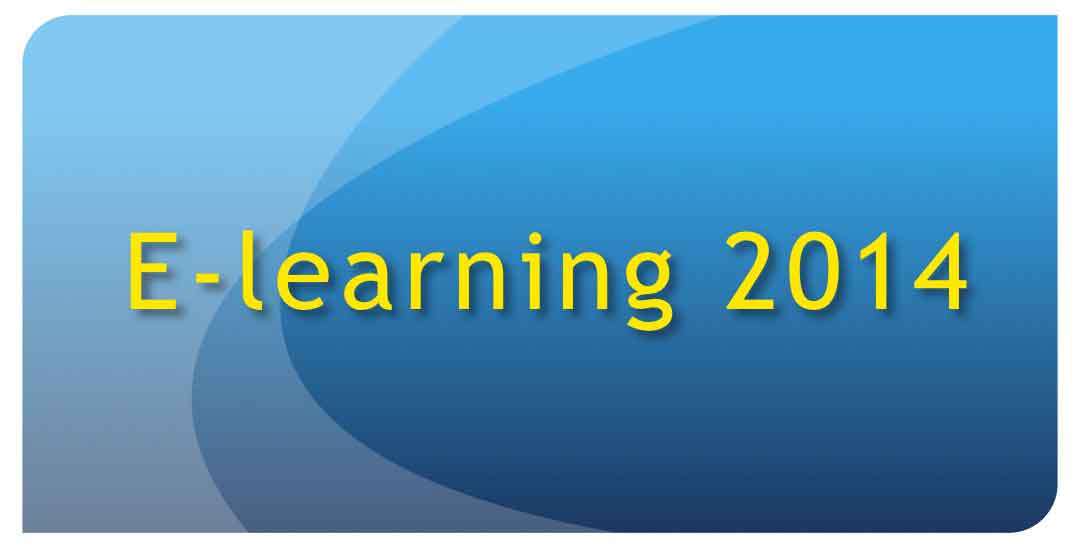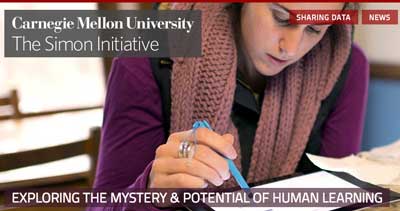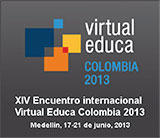News E-Learning
Two research on the status of Online Education in the United States

Some of the results obtained in this report are:
- 7.1 million college students are taking at least one online course.
- This represents an increase of 400,000 additional students the previous year.
- Percentages, almost 33% (one third) of students taking at least one online course.
- Most of the academic managers (75%) recognize that learning outcomes in online courses are equal to or better than classroom courses.
- Most agree that students require more responsibility and discipline to take online courses, and the abandonment of the courses remains one of the challenges of online education.
- Theme credit and extension of MOOCs also discusses sustainability.
The second study, conducted by Harvard professors and and MIT (Massachusetts Institute of Technology), reflects the situation of 17 courses MOOC (massive open online courses, and massive open online courses) offered through the edX platform. Among the results, the authors:
- The percentages of approval of courses can be misleading to study the potential impact of these courses.
- One of the issues identified is that the vast majority of students who are enrolled in a MOOC course, never come into contact with the educational content or are less than half.
- The dropout rate is much higher in the first weeks of the course (50 % drop in the first or second week) and stabilized as the course progresses.
- 43.196 students (5% of total enrollment ) approved courses and obtained certificates (an average of 2,540 per course estudiants MOOC).
- Although 66% of all enrolled students have completed a university degree, 33 % are women, only 6% are over 50, and only 3% from less developed countries according to the United Nations, the researchers argue that despite this, a lot of students get the opportunity to contact educational content and courses have a range for different types of people and people with different characteristics.
Although these studies have their limitations and are circunstritos only one country, we provide an interesting assessment of the online education and provide data that can be useful to us in our educational proposals.
Links of Interest:
Study "Grade Change" Tracking Online Education in the United States
Infographic of the main results
Two research on the status of Online Education in the United States

Some of the results obtained in this report are:
- 7.1 million college students are taking at least one online course.
- This represents an increase of 400,000 additional students the previous year.
- Percentages, almost 33% (one third) of students taking at least one online course.
- Most of the academic managers (75%) recognize that learning outcomes in online courses are equal to or better than classroom courses.
- Most agree that students require more responsibility and discipline to take online courses, and the abandonment of the courses remains one of the challenges of online education.
- Theme credit and extension of MOOCs also discusses sustainability.
The second study, conducted by Harvard professors and and MIT (Massachusetts Institute of Technology), reflects the situation of 17 courses MOOC (massive open online courses, and massive open online courses) offered through the edX platform. Among the results, the authors:
- The percentages of approval of courses can be misleading to study the potential impact of these courses.
- One of the issues identified is that the vast majority of students who are enrolled in a MOOC course, never come into contact with the educational content or are less than half.
- The dropout rate is much higher in the first weeks of the course (50 % drop in the first or second week) and stabilized as the course progresses.
- 43.196 students (5% of total enrollment ) approved courses and obtained certificates (an average of 2,540 per course estudiants MOOC).
- Although 66% of all enrolled students have completed a university degree, 33 % are women, only 6% are over 50, and only 3% from less developed countries according to the United Nations, the researchers argue that despite this, a lot of students get the opportunity to contact educational content and courses have a range for different types of people and people with different characteristics.
Although these studies have their limitations and are circunstritos only one country, we provide an interesting assessment of the online education and provide data that can be useful to us in our educational proposals.
Links of Interest:
Study "Grade Change" Tracking Online Education in the United States
Infographic of the main results
E-learning in 2014

E-learning continues to be an important learning strategy. In previous years, we have shared similar news, such as Perspectives elearning 2013, and e-Learning Trends 2012.
Many of these ideas and trends of recent years have prevailed, but with new innovations. We continue talking about:
- Mobile learning or m-learning as a result of the extended use of portable devices.
- Video-learning: the use of videos (now with greater quality and better design) as learning resources, with today’s greater connectivity.
- Social learning: social networks, emphasis on collaboration, participation and co-participation.
- Multi-platform contents, which should be visualized in any platform or device.
We also have new trends:
- MOOCS (Massive Open Online Courses), which have gained inmense popularity and also have generated much debate in favor and against MOOCS.
- Gamification: badges, points, rewards, new apps, games as a learning strategy.
- Tin Can API standard (evolution of SCORM standard), related to multi-platform contents and m-learning, which allows follow-up of students’ online and offline activities.
Technologies are always changing and it is imposible to predict all the innovations that will appear, taking into account that at the same time, learning methodologies and models in e-learning should also evolve.
We share these related links:
E-learning in 2014

E-learning continues to be an important learning strategy. In previous years, we have shared similar news, such as Perspectives elearning 2013, and e-Learning Trends 2012.
Many of these ideas and trends of recent years have prevailed, but with new innovations. We continue talking about:
- Mobile learning or m-learning as a result of the extended use of portable devices.
- Video-learning: the use of videos (now with greater quality and better design) as learning resources, with today’s greater connectivity.
- Social learning: social networks, emphasis on collaboration, participation and co-participation.
- Multi-platform contents, which should be visualized in any platform or device.
We also have new trends:
- MOOCS (Massive Open Online Courses), which have gained inmense popularity and also have generated much debate in favor and against MOOCS.
- Gamification: badges, points, rewards, new apps, games as a learning strategy.
- Tin Can API standard (evolution of SCORM standard), related to multi-platform contents and m-learning, which allows follow-up of students’ online and offline activities.
Technologies are always changing and it is imposible to predict all the innovations that will appear, taking into account that at the same time, learning methodologies and models in e-learning should also evolve.
We share these related links:
Global Learning Council to develop quality standards in online-learning

The Global Learning Council is an initiative of Carnegie Mellon University (Pittsburgh, USA), which will seek to study quality standards in online-learning, propose "best practices", reflect on the role of technology in learning, determine what metrics to use and the most effective methods to achieve quality.
According to the website, “a virtual organization, the newly formed Global Learning Council (GLC) is committed to the use of science and technology to enhance learning. It is dedicated to open sharing of data and best practices among institutions and across sectors. The GLC is pleased to include a distinguished group of members who represent the leadership from major organizations, industry and academia from around the world."
Among the members of the Council are Professor Carl E. Wieman (Stanford University and Nobel Prize in Physics), MOOCs experts, Anant Agarwal (MIT University and current president of edX), Daphne Koller (Stanford University and founder of Coursera), representatives from Google, Kaplan, Bill & Melinda Gates Foundation and the World Economic Forum, and other officials from various universities.
The GLC’s mission will be to:
- Improve communication and coordination among key constituencies;
- Develop standards, ethics, protocols and practices that promote collaboration and advance our understanding of learning and the role of technology in learning;
- Identify shared areas of focus and develop strategies for action.
In addition to the Global Learning Council, the University is developing the Simon Initiative to promote research on technology-aided learning.
Although in its early stages, we hope that this initiative will allow us, the educational community, to find new experiences, useful documents and improve the learning process in online-learning.

Related links:
Press release: Carnegie Mellon University
Simon Initiative y Global Learning Council
New Council to Develop Standards, Best Practices for Online Learning (Blog post: The Chronicle of Higher Education)
Global Learning Council to develop quality standards in online-learning

The Global Learning Council is an initiative of Carnegie Mellon University (Pittsburgh, USA), which will seek to study quality standards in online-learning, propose "best practices", reflect on the role of technology in learning, determine what metrics to use and the most effective methods to achieve quality.
According to the website, “a virtual organization, the newly formed Global Learning Council (GLC) is committed to the use of science and technology to enhance learning. It is dedicated to open sharing of data and best practices among institutions and across sectors. The GLC is pleased to include a distinguished group of members who represent the leadership from major organizations, industry and academia from around the world."
Among the members of the Council are Professor Carl E. Wieman (Stanford University and Nobel Prize in Physics), MOOCs experts, Anant Agarwal (MIT University and current president of edX), Daphne Koller (Stanford University and founder of Coursera), representatives from Google, Kaplan, Bill & Melinda Gates Foundation and the World Economic Forum, and other officials from various universities.
The GLC’s mission will be to:
- Improve communication and coordination among key constituencies;
- Develop standards, ethics, protocols and practices that promote collaboration and advance our understanding of learning and the role of technology in learning;
- Identify shared areas of focus and develop strategies for action.
In addition to the Global Learning Council, the University is developing the Simon Initiative to promote research on technology-aided learning.
Although in its early stages, we hope that this initiative will allow us, the educational community, to find new experiences, useful documents and improve the learning process in online-learning.

Related links:
Press release: Carnegie Mellon University
Simon Initiative y Global Learning Council
New Council to Develop Standards, Best Practices for Online Learning (Blog post: The Chronicle of Higher Education)
"Open Education Europa" Portal

The European Commission has launched a new website called "Open Education Europa", where you can find and also share open educational resources, courses and MOOCs in various areas and intended for people of different educational levels.
It is also a meeting point and discussion forum on innovation and education, creating a community of students, teachers and scholars.
The portal is divided into the following major sections:
• The FIND section showcases MOOCs, courses, and Open Educational Resources by leading European institutions. Each institution is also featured in this section alongside the MOOCs, courses, and the Open Educational Resources it provides.
• The SHARE section is the space where portal users (scholars, educators, policymakers, students and other stakeholders) come together to share and discuss solutions for a diverse range of educational issues by posting blogs, sharing events, and engaging in thematic discussions.
• The IN-DEPTH section hosts eLearning Papers — the world’s most visited e-journal on open education and new technologies —, provides an exhaustive list of EU-funded projects, and highlights the latest news about open education as well as the most relevant recently published scholarly articles.
"Open Education Europa" Portal

The European Commission has launched a new website called "Open Education Europa", where you can find and also share open educational resources, courses and MOOCs in various areas and intended for people of different educational levels.
It is also a meeting point and discussion forum on innovation and education, creating a community of students, teachers and scholars.
The portal is divided into the following major sections:
• The FIND section showcases MOOCs, courses, and Open Educational Resources by leading European institutions. Each institution is also featured in this section alongside the MOOCs, courses, and the Open Educational Resources it provides.
• The SHARE section is the space where portal users (scholars, educators, policymakers, students and other stakeholders) come together to share and discuss solutions for a diverse range of educational issues by posting blogs, sharing events, and engaging in thematic discussions.
• The IN-DEPTH section hosts eLearning Papers — the world’s most visited e-journal on open education and new technologies —, provides an exhaustive list of EU-funded projects, and highlights the latest news about open education as well as the most relevant recently published scholarly articles.
E-learning Infographics
Infographics have become popular recently but have been used for a long time, in newspapers, magazines, advertising and other media. According to the Eduteka Portal, a commonly accepted definition of Infographics is "graphic representation, in poster form, including data, graphics and text to communicate, in a simple manner, complex ideas or concepts".
Infographics are visually appealing and show and communicate detailed and summarized information on a particular topic, drawing attention and encouraging the search for other sources.
One advantage of infographics nowadays is that you can now design an image vertically with a varying length and a generally standardized width for use in blogs, social networks or other publications.... Thus, the infographic is easy to view and read in our computer screen by only using the mouse scroll wheel.
In education, they can be used as a teaching resource, or as a class activity to create the infographic. This requires a process of documentation, gathering and selection of data to display, design (style, color, fonts, icons) and choosing an effective method to share this information.
There are many tools to create our own infographics: online applications like Visual.ly, Infogr.am, Piktochart or graphics editors such as Photoshop, Illustrator, Gimp.
We share a collection of infographics on e-Learning and other links:
E-learning Infographics
Infographics have become popular recently but have been used for a long time, in newspapers, magazines, advertising and other media. According to the Eduteka Portal, a commonly accepted definition of Infographics is "graphic representation, in poster form, including data, graphics and text to communicate, in a simple manner, complex ideas or concepts".
Infographics are visually appealing and show and communicate detailed and summarized information on a particular topic, drawing attention and encouraging the search for other sources.
One advantage of infographics nowadays is that you can now design an image vertically with a varying length and a generally standardized width for use in blogs, social networks or other publications.... Thus, the infographic is easy to view and read in our computer screen by only using the mouse scroll wheel.
In education, they can be used as a teaching resource, or as a class activity to create the infographic. This requires a process of documentation, gathering and selection of data to display, design (style, color, fonts, icons) and choosing an effective method to share this information.
There are many tools to create our own infographics: online applications like Visual.ly, Infogr.am, Piktochart or graphics editors such as Photoshop, Illustrator, Gimp.
We share a collection of infographics on e-Learning and other links:
“Curated” content about E-Learning

The concept of content curation is still recent but is continually being more frequently used. According to Sergio Ortega (2011), content curation is the “capacity of a system or human being to find, organize, filter and give meaning, relevance, and usefulness to the contents about a specific theme, obtained through different sources” (free translation).
As stated by Sean Carton, content curation “has now come to mean the act of sorting through the vast amounts of content on the web and presenting it in a coherent way, organized around a specific topic(s)… Just as a museum curator must decide which artifacts to display during an exhibition, an online curator decides what information available online is appropriate and relevant to her audience.”
A Content curator (from the Latin cura or curare, “to take care”) according to Rohit Bhargava (2009) is “someone who continually finds, groups, organizes and shares the best and most relevant content on a specific issue online.” Jan Sykes (2013) also states that “the value of your curated content lies not only in the material selected but also in the timeliness, order of importance indicated for content items chosen, and analysis you add.”
Scoop.it (from the word “scoop”, or the informal term used in journalism, which connotes “originality”, “importance”) is a publishing-by-curation platform. It allows us to easily create an online magazine or newspaper, from different sources and grouping contents about a topic. The platform also allows us to follow topics created by others around our interests.
We have selected some topics with “curated” contents related to E-learning, which are available in the Scoop.it portal, in the following links:
· E-Learning and Online Teaching
In Spanish:
· E-Learning, Formación, Aprendizaje y Gestión del Conocimiento con TIC en pequeñas dosis
“Curated” content about E-Learning

The concept of content curation is still recent but is continually being more frequently used. According to Sergio Ortega (2011), content curation is the “capacity of a system or human being to find, organize, filter and give meaning, relevance, and usefulness to the contents about a specific theme, obtained through different sources” (free translation).
As stated by Sean Carton, content curation “has now come to mean the act of sorting through the vast amounts of content on the web and presenting it in a coherent way, organized around a specific topic(s)… Just as a museum curator must decide which artifacts to display during an exhibition, an online curator decides what information available online is appropriate and relevant to her audience.”
A Content curator (from the Latin cura or curare, “to take care”) according to Rohit Bhargava (2009) is “someone who continually finds, groups, organizes and shares the best and most relevant content on a specific issue online.” Jan Sykes (2013) also states that “the value of your curated content lies not only in the material selected but also in the timeliness, order of importance indicated for content items chosen, and analysis you add.”
Scoop.it (from the word “scoop”, or the informal term used in journalism, which connotes “originality”, “importance”) is a publishing-by-curation platform. It allows us to easily create an online magazine or newspaper, from different sources and grouping contents about a topic. The platform also allows us to follow topics created by others around our interests.
We have selected some topics with “curated” contents related to E-learning, which are available in the Scoop.it portal, in the following links:
· E-Learning and Online Teaching
In Spanish:
· E-Learning, Formación, Aprendizaje y Gestión del Conocimiento con TIC en pequeñas dosis
Available the last volume of the Ibero American Journal of Distance Education

Recently released the latest volume of the Journal of Distance Education Iberoamericana.
This international journal is a strategy of the American Association of Higher Distance Education in order to disseminate the advances in research and innovation in the field of education and open and distance learning.
The magazine, with articles of high quality, is published in print and electronic format and content completosestán available from the website.
Links to the Journal:
Available the last volume of the Ibero American Journal of Distance Education

Recently released the latest volume of the Journal of Distance Education Iberoamericana.
This international journal is a strategy of the American Association of Higher Distance Education in order to disseminate the advances in research and innovation in the field of education and open and distance learning.
The magazine, with articles of high quality, is published in print and electronic format and content completosestán available from the website.
Links to the Journal:
XIV Virtual Educa International Meeting Colombia 2013

From 17 to June 21, 2013, took place in Medellin, the XIV International Virtual Educa Colombia 2013. Virtual meeting spaces Educa promote reflection on innovation in education as a strategic mechanism for social inclusion and sustainable development. The annual international meeting is organized into eight broad themes among which we highlight the axis of "Virtual Education, a quality issue."
Among the many activities in the meeting, there was a display table on quality in e-learning, called "II Seminar eLearning Quality in Latin America", which was aimed at analyzing the aspects to consider in terms of quality development of online courses from the experience of the Red EDUC @ L.
Virtual Educa The next meeting will be held in Peru 2014.
More info:
http://www.virtualeduca.org/encuentros/colombia/index.php
XIV Virtual Educa International Meeting Colombia 2013

From 17 to June 21, 2013, took place in Medellin, the XIV International Virtual Educa Colombia 2013. Virtual meeting spaces Educa promote reflection on innovation in education as a strategic mechanism for social inclusion and sustainable development. The annual international meeting is organized into eight broad themes among which we highlight the axis of "Virtual Education, a quality issue."
Among the many activities in the meeting, there was a display table on quality in e-learning, called "II Seminar eLearning Quality in Latin America", which was aimed at analyzing the aspects to consider in terms of quality development of online courses from the experience of the Red EDUC @ L.
Virtual Educa The next meeting will be held in Peru 2014.
More info:
https://www.virtualeduca.org/encuentros/colombia/index.php
“Best of Elearning” Awards

The best e-learning solutions and workplace technology products and services will be selected and awarded after being nominated and voted by users, across 26 different categories. The reader’s choice “Best Of Elearning! Awards” have given distinction to open-source and licensed technologies like Moodle, Blackboard Collaborate, Articulate Storyline, Camtasia, Prezi, Microsoft Power Point, Evernote, among others. The awards will be announced during the Enterprise Learning! Conference & Expo, August 26 to 28, 2013 in Anaheim, CA.
More info:
“Best of Elearning” Awards

The best e-learning solutions and workplace technology products and services will be selected and awarded after being nominated and voted by users, across 26 different categories. The reader’s choice “Best Of Elearning! Awards” have given distinction to open-source and licensed technologies like Moodle, Blackboard Collaborate, Articulate Storyline, Camtasia, Prezi, Microsoft Power Point, Evernote, among others. The awards will be announced during the Enterprise Learning! Conference & Expo, August 26 to 28, 2013 in Anaheim, CA.
More info:
Perspectives elearning 2013
Instead of the traditional article on technology trends for next year, I would like to reflect on what are the challenges facing the technology training through face to 2013.
What are the constraints, the scenario we can expect, what about our market internationally.
Perspectives elearning 2013
Instead of the traditional article on technology trends for next year, I would like to reflect on what are the challenges facing the technology training through face to 2013.
What are the constraints, the scenario we can expect, what about our market internationally.

